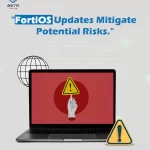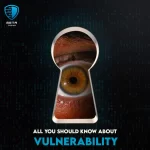The dark web or the definition of dark web refers to the encrypted portion of the internet that is not visible to the general public through traditional search engines. It forms a small part of the deep web, which encompasses any content not indexed by search engines, including online banking portals, subscription-only websites, and private databases.

What is the definition of the dark web?
The Dark Web is a part of the internet that is not indexed by traditional search engines like Google, Bing, or Yahoo. It is a hidden network of websites and online services that require specific software, configurations, or permissions to access. Unlike the surface web, which is easily accessible through standard web browsers, the Dark Web operates on encrypted networks and is often associated with illicit activities, anonymity, and privacy concerns.
One of the key features of the Dark Web is its anonymity. Users can access websites and communicate with others without revealing their identities or locations. This anonymity is achieved through tools like Tor (The Onion Router), which routes internet traffic through a series of encrypted nodes, making it difficult to trace back to the original source.
The Dark Web is also known for hosting also as a variety of illegal marketplaces where users can buy and sell drugs, weapons, counterfeit goods, stolen data, and more. These marketplaces often operate using cryptocurrencies like Bitcoin to facilitate anonymous transactions. Additionally, the Dark Web is a hub for cybercriminal activities such as hacking services, malware distribution, and identity theft schemes.
Despite its allure of anonymity, the Dark Web poses significant risks to users. It’s a breeding ground for scams, frauds, and cyberattacks. Malicious actors take advantage of anonymity to launch phishing campaigns, distribute malware, and steal personal information. Moreover, accessing illegal content or participating in illicit activities on the Dark Web can lead to legal consequences.
Types of Activities on dark web
While the dark web has legitimate uses, such as secure communications and whistleblowing, it is more commonly associated with illegal activities, including:
- Illegal marketplaces for drugs, weapons, and other illicit goods
- Cybercrime activities, such as hacking, malware distribution, and identity theft
- Illegal pornography and exploitation
- Terrorist activities and extremist content
- Financial crimes, including money laundering and fraud
To protect against the threats posed by cybercriminals on the dark web, services like Meta Techs Cybersecurity offer robust defenses, employing advanced techniques to safeguard personal information and prevent cyberattacks.
What is the difference between the dark web, deep web, and surface web?
The Three Layers of the Internet
The internet can be divided into three distinct layers: the surface web, the deep web, and the dark web. Understanding the differences between these layers is crucial for navigating the digital landscape safely and effectively.
- The Surface Web:
- The surface web, also known as the visible web or the open web, refers to the portion of the internet that is indexed by search engines like Google, Bing, and Yahoo.
- It comprises websites and web pages that are easily accessible through standard web browsers and search queries.
- Examples include news websites, blogs, online stores, and social media platforms.
- The Deep Web:
- The deep web, often referred to as the invisible web or the hidden web, encompasses web content that is not indexed by search engines.
- It includes databases, private networks, intranets, and web pages that require authentication or specific software to access.
- Examples of the deep web include online banking portals, subscription-based services, and private databases used by organizations.
- The dark web is a small subset of the deep web, characterized by its anonymity and encryption.
- The Dark Web:
- The dark web, as mentioned is a small, encrypted portion of the internet that is only accessible through specialized software like the Tor browser.
- It provides a high level of anonymity and encryption, making it difficult to trace the identities and locations of users.
- While the dark web has legitimate uses, such as secure communication and whistleblowing, it is often associated with illegal activities like cybercriminals engaging in cyberattacks, identity monitoring, and the sale of illicit goods.
It’s important to note that while the dark web is often associated with illegal activities, accessing it is not inherently illegal. However, engaging in unlawful activities on the dark web can have serious legal consequences.
How to access the dark web
Accessing the Dark Web
Accessing the dark web requires specialized software and precautions to maintain anonymity and security. Here are the key steps to access the dark web:
- Install the Tor Browser:
- The Tor browser is the primary gateway to the dark web, providing anonymity by routing traffic through multiple encrypted layers.
- Download and install the Tor browser from the official Tor Project website .
- Use a Virtual Private Network (VPN):
- A VPN adds an extra layer of encryption and anonymity by masking your IP address and location.
- Choose a reputable VPN service and connect to a secure server before launching the Tor browser.
- Secure Your Computer:
- Enable firewalls and antivirus software to protect against potential threats.
- Disable unnecessary plugins, ActiveX, and Java to reduce attack vectors.
- Consider using a secondary, non-admin account for added security.
- Navigate to .onion Websites:
- Websites on the dark web typically have the “.onion” top-level domain.
- Use search engines like DuckDuckGo or specialized dark web directories to find .onion websites.
- Protect Your Identity:
- Never reveal personal information or engage in illegal activities on the dark web.
- Use anonymous communication tools like encrypted messaging apps or secure email services.
- Monitor for signs of identity theft and take immediate action if compromised.
Types of threats on the dark web
Malware and Cyberattacks
The dark web serves as a breeding ground for malicious software (malware) and cyberattacks. Cybercriminals leverage the anonymity and encryption of the dark web to distribute malware, launch phishing campaigns, and orchestrate distributed denial-of-service (DDoS) attacks. These threats can compromise sensitive data, disrupt operations, and cause significant financial losses for individuals and enterprises.
Identity Theft and Data Breaches
One of the most prevalent threats on the dark web is identity theft. Cybercriminals trade stolen personal information, such as credit card details, social security numbers, and login credentials, on underground marketplaces. This information can be used for fraudulent activities, financial theft, and other criminal endeavors. Additionally, data breaches involving sensitive corporate or government data are often facilitated through the dark web, posing significant risks to organizations and individuals.
Darknet Markets and Illegal Trade
Dark web is notorious for hosting darknet markets, which are online black markets for the sale of illegal goods and services. These markets facilitate the trade of drugs, weapons, stolen data, and other illicit items, enabling criminal activities and posing significant legal and security risks.
Ransomware and Botnets
The dark web is a hub for ransomware operations, where cybercriminals distribute and trade ransomware strains. These malicious programs encrypt victims’ data and demand ransom payments, often in cryptocurrency, for decryption. Additionally, botnets, which are networks of compromised devices used for malicious purposes, are often controlled and managed through the dark web.
Money Laundering and Financial Crimes
The anonymity and encryption of the dark web make it an attractive platform for money laundering and other financial crimes. Cybercriminals can use the dark web to facilitate the transfer and concealment of illegally obtained funds, further enabling criminal activities.
Is it illegal to access the dark web?
Accessing the dark web itself is not illegal. However, engaging in unlawful activities on the dark web can have severe legal consequences. It is crucial to exercise caution and implement robust security measures to protect personal information from potential threats.
Legal Considerations
- Accessing the Dark Web:
- Merely accessing the dark web through specialized software like the Tor browser is not considered illegal in most jurisdictions.
- The dark web serves legitimate purposes, such as enabling secure communication and protecting the privacy of individuals and whistleblowers.
- Illegal Activities:
- Engaging in illegal activities on the dark web, such as buying or selling illicit goods, distributing malware, or participating in cybercrime, is strictly prohibited and can result in criminal charges.
- Activities like identity theft, financial fraud, and the distribution of illegal content (e.g., child exploitation material) are punishable by law.
- Jurisdiction and Laws:
- Laws and regulations regarding the dark web can vary across different countries and jurisdictions.
- It is essential to familiarize oneself with the relevant laws and regulations in one’s location to avoid inadvertently engaging in illegal activities.
Conclusion
The dark web, as defined in the article, is an encrypted and anonymous part of the internet that can only be accessed through specialized software like Tor. While it has legitimate uses, it is often associated with illegal activities like cybercrime, identity theft, and the sale of illicit goods. The dark web highlights the need for caution and robust security measures when navigating this realm.
Ultimately, understanding the definition of dark web and its potential risks is crucial for staying safe online. Services like Meta Techs Cybersecurity offer protection against cybercriminals, safeguarding personal information and mitigating threats from the dark web. By being informed and taking appropriate precautions, individuals and organizations can navigate the digital landscape, including the dark web, with confidence and security.
FAQs
1. What is the deep web?
The deep web consists of parts of the internet that are not indexed by standard search engines like Google, Yahoo, and Bing. This includes unindexed pages, fee-for-service sites, private databases, and areas of the dark web.
2. What is the purpose of the dark web?
The dark web comprises websites, forums, and marketplaces that can only be accessed using the Tor browser, which provides anonymity. It’s frequently used by cybercriminals, hackers, and government operatives seeking to conceal their identities.
3. How do the deep web and the dark web differ?
The deep web is primarily used for protecting personal information, securing databases, and accessing certain services. In contrast, the dark web is often associated with illegal activities. It is also utilized for military and police investigations, political protests, and anonymous internet browsing.
4. What types of content can be found on the dark web?
The dark web is known for its use in illegal activities due to its anonymity. Commonly traded items include illegal drugs, weapons, stolen passwords, and identities, as well as illegal pornography and other harmful materials.








![Rapid7 Vulnerability Management]](https://meta-techs.net/wp-content/uploads/2025/03/What-is-Rapid7-Vulnerability-Management-1.webp)